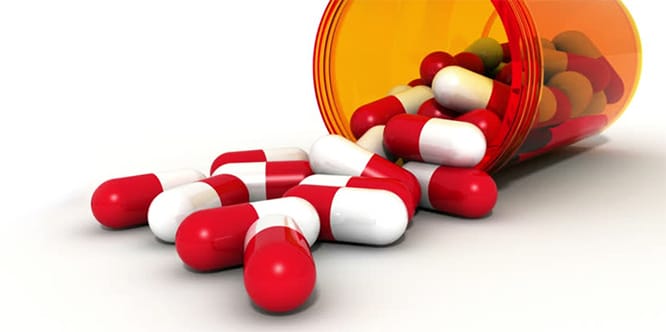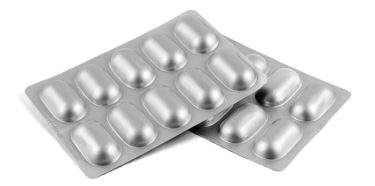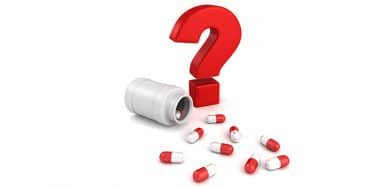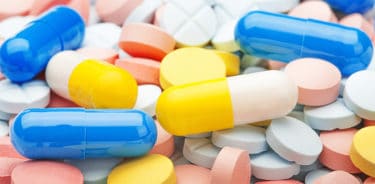Propranolol (Inderal) is a drug usually prescribed for the treatment of hypertension. It relaxes the body by inhibiting excessive release of stress hormones. It helps keep cardiovascular health under control. It also prevents the risk of heart attack. It alleviates symptoms of chronic migraine and intense anxiety. As the medicine takes effect over time, prolonged use may be required. Dizziness and drowsiness are common short-term side effects. However, severe symptoms such as dyspnea, severe heart palpitations, unconsciousness and an allergic reaction to the medicine may also be experienced. If the medicine is discontinued without informin a doctor, it may lead to chest pain or heart attack. The medicine should be used as prescribed and under the supervision of a doctor.
Table of Contents
What is Propranolol (Inderal)?
Propranol is a prescription medicine used to treat stress-induced diseases such as hypertension. The medicine is included in a group of medicines called beta-blockers. The active ingredient of inderal, propranolol hydrochloride, inhibits excessive release of stress hormones that negatively affect the cardiovascular system. Thus, it prevents fatigue of the heart and, thereby leading it to beat slower. (1)
It is a medicine that requires prolonged use, and if necessary life-long use. Irresponsible use of the medicine may lead to serious side effects. One of its excipients, Ponceau 4R, may cause allergic reactions. Mannitol may have a mild laxative effect. Smoking, coffee and alcohol consumption may increase the severity of side effects. (2)
Why is Propranolol used?
- Hypertension
- Arrhythmia
- Angina (help relieve chest pain)
- Migraine
- Cardiomyopathy
- Tremors of unkown origin
- Overanxiety
- Excessive secretion ofthyroid hormones
- After a heart attack to support the functions of the heart
- Benign tumor in adrenal gland
How does Propranolol work?
Propranolol relaxes blood vessels, improves blood flow and controls heart rhythm to lower elevated blood pressure by preventing the negative effects of stress hormones, such as adrenaline, in the body.
How long does it take for Propranolol to take effect?
The medicine relieves symptoms such as anxiety and overexcitement in an average of 30-60 minutes. It may take up to a week to show its full effect in heart diseases or hypertension. In migraine, it may require several weeks. This medicine makes a difference with prolonged use. Therefore, it should not be considered that it does not work.
How to use Propranolol?
- Split the medicine for dose adjustment only and take it with 1 glass of water.
- It can be taken on an empty or full stomach as it does not cause stomach discomfort. Just try to take it at around the same time every day.
- If there is not much time elapsed since the missed dose, take it immediately. Never double the dose to balance the missed one.
- If you find the effect weak or strong, do not adjust the dose without consulting your doctor.
- Keep using the medicine as prescribed, even if you feel well.
- Do not stop taking the medicine suddenly or do not discontinue the treatment without informing your doctor. It poses risks of serious chest pain and heart attack.
- Be sure to follow the instructions of your doctor to use the medicine efficiently and safely.
- Do not forget to make appointments for blood tests in which the effect of the medicine will be tested.
- Inform your doctor about the medicines you already take and the diseases you currently have.
Propranolol dosage
Dose of propranolol adjusted regarding some diseases is usually as follows in adults and children over 12 years old:
- Hypertension: The starting dose is 80 mg daily (2 tablets daily). If the dose is not enough, it can gradually be increased up to 160-320 mg daily with an interval of a week (4-8 tablets daily). In addition, diuretics and other medications for high blood pressure can be used to lower blood pressure more.
- Chest pain, anxiety, migraine and tremor: The starting dose is 40 mg daily. One tablet is taken by splitting it into 2 or 3 pieces. Depending on the condition of the patient, the dose can be increased up to 80-160 mg daily with an interval of one week. The dose can be increased to 120-240 mg daily only in chest pain.
- Arrhythmia and hyperthyroidism: The normal level of dose is 10-40 mg. One table is taken by splitting it into four equal pieces.
- After a heart attack: Treatmen is started on the 5th to 21st day following the attack. The starting dose is 40 mg daily taken at four equal pieces. Daily dose is increased to 80 mg (2 tablets) after an interval of 2-3 days.
- Tumor in adrenal gland: The medicine can be taken only with beta-blockers. It is taken at a dose of 60 mg for 3 days in case of a surgical intervention. Without an intervention, the dose is 30 mg daily.
The dose is adjusted specially for the elderly or individuals with kidney or liver problems. For children under 12 years old, the dose is adjusted according to the body weight.
How long does Propranolol last for?
Propranolol is generally used in long-term treatments. The duration is determined depending on the disease and general condition of patients. Some treatments are as follows:
- Hypertension or heart diseases: Continuously, life-long
- Migraine: Several months or a year depending on the severity of the symptoms
- Anxiety: Usually for several months to alleviate physical symptoms such as tremor, sweating, and tachycardia (may be prolonged up to a year depending on the condition)
Before the medicine is discontinued, the dose is gradually decreased with the adjustment of a doctor at least in a few weeks.
Propranolol overdose
Overdose may lead to symptoms of intoxication such as low blood pressure, decrease in the heart rate, heart failure and respiratory failure. You should apply to an emergency as soon as possible for a surgical intervention.
Things to consider when using propranolol
- Blood pressure and the heart rate (pulse) should be checked at regular intervals.
- The level of blood sugar should be tested frequently especially in patients with diabetes.
- The medicine may cause side effects such as visual impairment and drowsiness. Be sure about the effect of the medicine before driving car or using machinery.
- You should inform your doctor about the medicine if you undergo a surgery under general anesthesia.
Propranolol drug interactions
Medicines that Propranolol should not be taken with:
- Medicines increasing pulse and blood pressure: Medicines containing epinephrine (adrenalin), dobutamine or isoproterenol inactivates the medicine.
- Theophylline: Asthma and COPD medicines containing this substance increases the amount of the medicine in blood, leading to overdose.
- Other beta-blockers: Concurrent use of the medicine with other medicines that belongs to the same group such as esmolol and sotalol may lower the heart rate.
Other medicines that should be taken within the knowledge of a doctor are as follow:
- Antiarrhythmic drugs
- Other medicines for blood pressure such as ACE inhibitors, calcium channel blockers, and alpha blockers
- Anesthetic drugs
- Nonsteroidal anti-inflammatory drugs (NSAIDs)
- Blood thinners such as warfarin
- Cimetidine or antacids that treat gastric ulcers
- Medicines for diabetes that can cause insulin or low blood sugar
Your doctor should be informed about any medicine you use, including herbal supplements, for necessary follow-ups and dose adjustments.
Drinking alcohol while taking Propranolol
Alcohol may increase blood pressure lowering effect of the medicine, and cause dizziness or lightheadedness. Therefore, it should be avoided as much as possible.
Propranolol food interactions
Propranolol does not require any restriction on foods, except that there is a special diet advised by a doctor regarding the condition. The peak level of the amount of the medicine is achieved in 1-4 hours when taken on an empty stomach.
Forms and types of Propranolol
- Propranolol: Tablet – 10 mg, 40 mg
- Propranolol Hydrochloride: Injection – 1 mg/1 ml
Generic drugs containing propranolol
- Inderal: Tablet – 10 mg, 20 mg, 40 mg, 60 mg, 80 mg
- Inderal LA: Capsule – 60 mg, 80 mg, 120 mg, 160 mg
- Hemangeol: Solution – 4.28mg/1 ml
- InnoPran XL: Capsule – 80 mg, 120 mg
Who should not take Propranolol?
Those who have;
- allergie to the active ingredient propranolol hydrochloride and other excipients,
- ashtma, COPD oremphysema,
- worsening heart failure,
- the history of cardiogenic shock (acute inadequate blood flow),
- hypotension (low blood pressure),
- a lower heart rate than normal level (sinus bradycardia and second- or third-degree heart block)
- serious blood circulation problems such as tingling or bruising on their fingers and toes,
- acid-base balance disorder,
- prinzmetal angina (chest tightness or pain while resting)
- hypertension due to untreated adrenal tumor.
Who should take Propranolol with caution?
- Patients with Myasthenia Gravis (muscle weakness)
- Those with blood circulation problems
- People who experience symptoms such as sweating, loss of appetite, and weight loss due to hypertrioid
- Patients with psoriasis
- Those with diabetes
- Those with heart failure that is under control with medications
- Smokers (reduces the effect of the medicine)
- Those with the history of a serious allergy and allergic structure
- Those with Wolff-Parkinson-White syndrome (a disorder that increases the pulse or impairs conduction in the heart)
- Glaucoma patients
- Those with serious kidney or liver problems
- Those with a disease that causes excessive production of hormones in the thyroid gland
Use of Propranolol during pregnancy-breastfeeding
Those who are planning to become pregnant or those who are pregnant should inform their doctor while taking the medicine. Although it is considered that the medicine will not do any harm, there may be such a possibility. Your doctor may evaluate the benefit and loss according to your condition and decide whether to continue the treatment with this medicine. (3)
Safer medicines may be preferred by discontinuing the medication. The condition is the same for the period of breastfeeding.
Does Propranolol cause weight loss?
The medicine does not have a direct effect on weight loss. However, depending on the general state of health and metabolism of some people, it may lead to loss of appetite. In this case, it may indirectly cause weight loss.
Side effects of Propranolol
The most common side effects are: (4)
- Fatigue, dizziness, drowsiness, doziness
- Slow and irregular heartbeat
- Cold fingers or toes due to the circulatory system disorders
- Difficulty in sleeping or nightmares
- Nausea, vomiting, or diarrhea
Some of the rare side effects are;
- Constipation
- Dry mouth
- Hair loss
- Changes in sexual drive or erection problems
- Xerophthalmia or eye inflammation.
These symptoms are usually mild and for short-term. As the body gets accustomed to the medicine, these side effects may disappear. However, if they last more then a few days, you should consult your doctor. If the severity of a symptom increases, it may require an emergency intervention.
On the other hand;
- Swelling of the hands, feet, face and lips, dyspnea, difficulty in swallowing, skin rash and redness
- Excessive scaling or blisters on the skin
- Inflammation that causes swelling and redness around the eyes and on the skin
- Excessively lower pulse and blood pressure
- Unconsciousness; stop taking the medicine in these cases and apply to an emergency immediately.
These symptoms are serious allergic reactions to the medicine and requires a treatment in a hospital. To get more information about all side effects of the medicine, be sure to read the package insert. If you experience any of these side effects, do not forget to inform your doctor.




